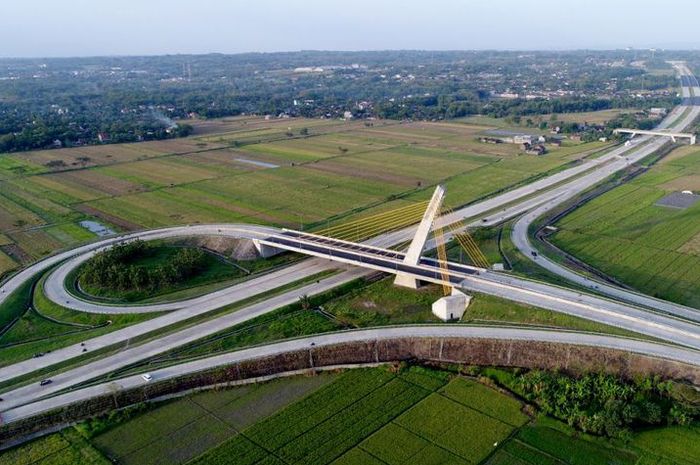The development of infrastructure in East Java receives a significant boost as PT Gudang Garam Tbk (GGRM), a major Indonesian tobacco company, commits an additional capital injection of Rp15 trillion for the Kediri Tulungagung toll road project. This bold move demonstrates the company's growing interest in expanding beyond its core business and into strategic infrastructure development, which is expected to enhance regional connectivity and economic growth in East Java.
The Significance of the Kediri Tulungagung Toll Road
The Kediri Tulungagung toll road is a key infrastructure initiative designed to connect major cities in East Java, easing transportation bottlenecks and reducing travel time significantly. The project spans approximately 44 kilometers and is part of a broader effort to modernize Indonesia’s logistics and transportation network.
By improving access between Kediri and Tulungagung, the toll road is expected to facilitate trade, reduce logistics costs, and increase investment opportunities along the corridor. The presence of the Kediri International Airport nearby further enhances the toll road’s strategic value, positioning it as a critical economic artery for the region.
Gudang Garam's Infrastructure Expansion Strategy
Gudang Garam, historically known for its clove cigarette business, is increasingly diversifying its investments. Through its subsidiary, PT Surya Dhoho Investama, the company has become a key player in regional infrastructure, including the construction and management of the Kediri International Airport.
The recent Rp15 trillion capital increase is a clear indication of the company's long-term vision. This substantial investment will not only fund the toll road's construction but also ensure its operational sustainability in the future. The funding is expected to cover land acquisition, engineering works, environmental assessments, and the actual construction.
By investing heavily in infrastructure, Gudang Garam aims to support economic development in its home base of Kediri and neighboring areas, while also enhancing the competitiveness of the entire East Java region.
Economic Impacts and Regional Growth
The toll road’s development is expected to have wide-reaching economic impacts. Improved road connectivity will allow manufacturers, logistics providers, and small businesses to operate more efficiently. In turn, this can lead to job creation, increased property values, and more robust commercial activity along the route.
The synergy between the toll road and the Kediri International Airport is particularly noteworthy. Together, these two infrastructure projects are set to transform Kediri into a new economic hub in East Java, offering seamless multimodal transportation options for both passengers and freight.
Moreover, the project aligns with the Indonesian government’s long-term infrastructure development goals, as outlined in the National Medium-Term Development Plan (RPJMN). By involving private sector players like Gudang Garam, the government can share the financial burden and expedite project delivery.
Challenges and Considerations
While the project promises significant benefits, there are also challenges to address. Land acquisition remains one of the most common obstacles in infrastructure development in Indonesia. Ensuring that compensation is fair and transparent will be crucial in preventing delays and minimizing social resistance.
Environmental sustainability is another key concern. Given that the toll road will pass through a variety of landscapes, careful environmental impact assessments must be conducted to ensure minimal disruption to ecosystems and communities.
Regulatory hurdles and construction delays are also potential risks. As with many large-scale infrastructure projects, coordination between national and regional governments, private investors, and contractors will be essential for successful implementation.
Gudang Garam’s Role in Nation Building
Gudang Garam’s move into the infrastructure sector reflects a broader trend among large Indonesian companies diversifying their portfolios and contributing to national development. By investing in critical infrastructure like the Kediri Tulungagung toll road, the company is not only supporting economic growth but also enhancing its own long-term sustainability.
This strategy also helps Gudang Garam strengthen its corporate reputation as a socially responsible enterprise. Infrastructure development, particularly in under-served regions, is often viewed positively by stakeholders, including investors, government bodies, and local communities.
Future Outlook
With construction expected to ramp up following the recent capital injection, the Kediri Tulungagung toll road is likely to become operational in the next few years. Once completed, it will serve as a backbone for regional transportation and logistics, linking industrial zones, airports, and seaports more efficiently.
If successful, Gudang Garam’s infrastructure investments could set a precedent for other private companies in Indonesia to follow suit. As the government seeks to close its infrastructure gap, the participation of well-capitalized firms like GGRM will be instrumental in accelerating development.
Looking ahead, observers will be watching closely to see how Gudang Garam navigates the complexities of toll road construction and whether this project delivers on its promise of economic revitalization in East Java.
Read More






 Friday, 27-02-26
Friday, 27-02-26







